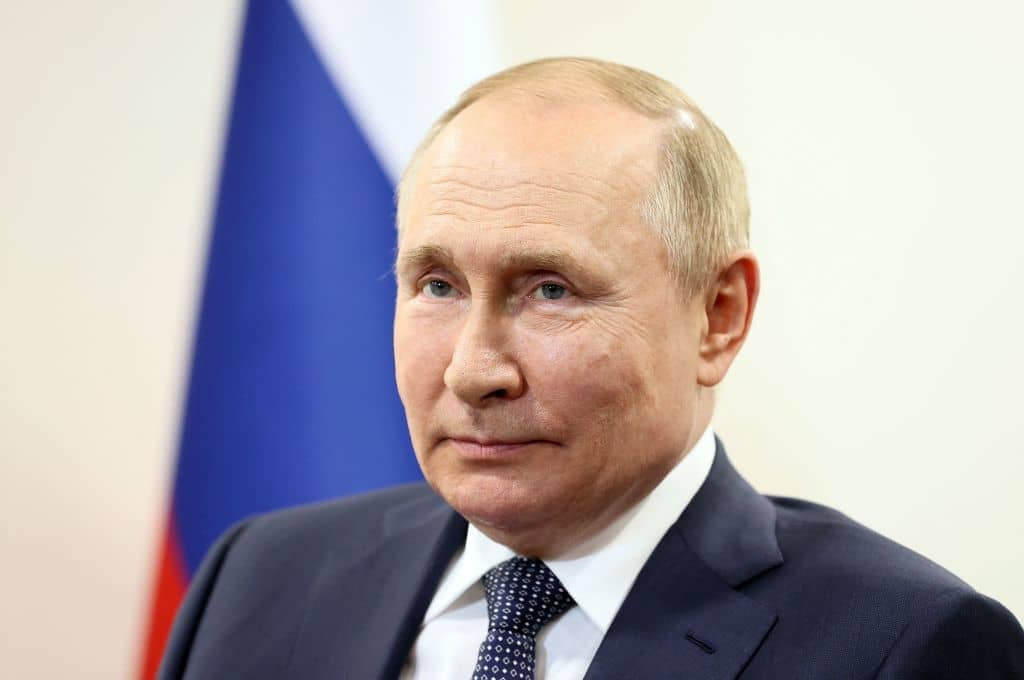Soon after Vladimir Putin launched his invasion of Ukraine in February a rash of stories appeared in the western media speculating that the Russian president was dying, or at least very seriously ill. The evidence offered was circumstantial but superficially compelling. This ranged from the absurdly long tables the dictator uses to keep his distance from his aides, to analysis of such symptoms as his awkwardly shaking limbs and puffy face. There were also reports that Putin keeps a top cancer specialist in his entourage at all times.
Now, no less an authority than the boss of the CIA, William Burns, has poured a douche of cold water on such wishful thinking. Addressing a security conference at Aspen, Colorado, Burns, a former US ambassador to Russia, said that there was no real evidence that Putin was sick. On the contrary, Burns believes that the Russian leader – who turns 70 this year – is in rude good health and bent on his goal of restoring Russia to great power status. It’s an aim that will include subduing Ukraine and turning it into a puppet state of Moscow.
There have been no photoshoots lately showing a bare chested president riding horses or hunting bears
In closed and centralised top down societies such as the old Soviet Union – which Russia has again become under Putin’s personal rule – the health of its dictatorial leaders has always been more important than in liberal democracies, where ailing leaders can always resign or be rapidly replaced by the verdict of the voters.
The collapse of the Soviet Union was hastened by a trio of geriatric leaders – Brezhnev, Andropov and Chernenko – who followed each other in quick succession. All three died in office; all were already mortally ill when in power. Only when a relatively young and healthy boss in the shape of Mikhail Gorbachev took control did things start to change. But by then it was far too late to save the moribund Soviet system from a total meltdown, symbolised by the implosion of the Chernobyl nuclear power station.
Even in western democracies, however, the health of individual leaders has often been a vital but frequently overlooked factor in politics. President Roosevelt – whose paralysis due to polio was carefully concealed from the US voters who voted him into power four times – was obviously a dying man at the Yalta conference in February 1945 which handed Eastern Europe to Stalin’s tender mercies on a plate. FDR passed away only weeks later.
President John F. Kennedy’s vigorous and youthful image hid the fact that he wore a medical corset having suffered devastating back injuries during the second world war. JFK also took a cocktail of mind-altering drugs to control Addisons’ Disease, a rare endocrine deficiency. Today, president Biden, who turns 80 this year, though apparently physically well if not actually senile, has clear cognitive health issues leading to what the media politely call his ‘gaffes’. These incidents have contributed to his plummeting popularity and the likely Democratic loss of control of Congress this November.
Nor can Europe boast a clean bill of health when it comes to some of our most revered leaders. In his second period in power in the early 1950s, Winston Churchill suffered a major stroke which was deliberately hidden from the public by his physicians and his compliant cabinet. Churchill’s successor as PM, Anthony Eden, was on upper and downer drugs leading to mood swings after a botched abdominal operation. Eden’s drug habit was likely to have been a major cause of him launching the disastrous Suez invasion of Egypt in 1956: Britain’s biggest postwar foreign policy debacle.
This week, papers released by the National Archives revealed that in 1981 Britain’s ambassador in Paris Sir Reginald Hibbert informed Whitehall that France’s president Francois Mitterrand was probably secretly suffering from cancer. Mitterrand went on pulling the wool over the French people’s eyes that he was terminally ill right up to his death in 1996.
Despite Burns’ dampening western hopes that Putin is ill or at death’s door, it is a fact that the Russian leader who set such store on projecting a healthy macho image is no longer the man he was: there have been no photoshoots lately showing a bare chested president riding horses or hunting bears. Well or ill, time is not on his side, and an old man in a hurry spells danger to the world.






Comments